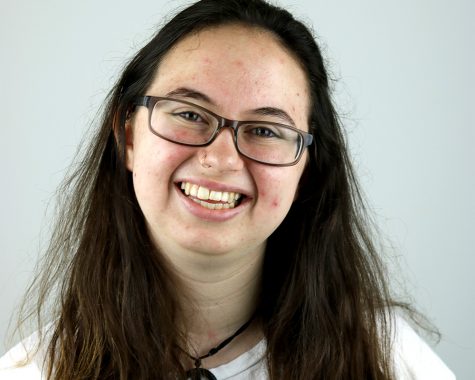Physics, philosophy, other programs updated at CAA meeting
November 30, 2017
The Council on Academic Affairs voted in favor changing several aspects of the physics department made because of difficulties it has fully staffing colleges and departments.
Steven Daniels, chair of the physics department, was at the meeting Thursday to answer any potential questions about the changes.
“We have decided to revamp our entire curriculum so that we could present a cohesive and high-quality program given the constraints of staffing that we have,” Daniels said.
Changes the department has already made included changing the number of concentrations in the physics department from seven to five and cutting out some classes from the curriculum.
The CAA voted to change the current Dynamics course to be broader and more effective.
Daniels also proposed reorganizing a current two-semester quantum mechanics class to not only have a more equal number of semester credit hours, but to also include the teachings of a lower level quantum mechanics introductory course, therefore eliminating the need for said course.
Five other physics majors were revised, including the bachelor’s in physics, the engineering option, astronomy option, and the engineering and computational physics options.
“With all of (the proposed changes), we wanted to draw on the strengths of the … university and select (a) course or two that other departments were teaching to strengthen the program,” Daniels said.
All proposed changes to the physics program were unanimously passed by the council.
Julie Dietz, chair of the health promotion department, proposed the idea of breaking up the emergency management and disaster preparedness program, housed in health studies, to reduce required credit hours from 73 to 51 and create two defined potential education and career tracks: a first responder track and an emergency management track.
Dietz said this change would help make the program more manageable, especially for transfer students and students wishing to pick up extra credits at Lake Land College.
This program change was also passed unanimously.
A proposed addition to offer Anatomy and Physiology I and II honors courses was presented by Anabela Maia, a biological sciences professor.
The change would potentially give students a better chance on obtaining a higher score on the Medical College Admissions Test, which would allow them to get into a more successful medical school, Maia said.
Having these courses would allow honors students who are majoring in biological sciences to gain honors credits from taking it. Right now, the class is not officially counted toward a biological sciences degree but is recommended for students to take.
This proposal also passed unanimously.
The philosophy department proposed the reduction of required credit hours, a possible integrated philosophy degree program and a new ethics minor.
An integrated program would mean those who decide to get an integrated philosophy degree would be required to take 24 philosophy credits and 15 credits from whichever area the student chooses.
Philosophy department chair Jonelle DePetro said this type of program and the reduced required credits for a normal philosophy degree would hopefully encourage more students to be involved with the department.
“We’re hoping that this will be something that will be attractive to students and also something that allows them to follow their interests; their scholarly interests, their research interests, their academic interests and their career interests,” DePetro said.
All three of the philosophy proposals were unanimously passed.
Brooke Schwartz can be reached at 581-2812 or at [email protected].


















































